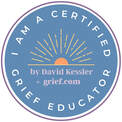|
“Guilt is just as powerful, but its influence is positive, while shame's is destructive. Shame erodes our courage and fuels disengagement.” --Brené Brown
Shame is a topic most people avoid. It is uncomfortable and dark. The truth is, we all have shame. It is a universal emotion and research has shown that the only people who don’t feel shame are those that are pathologically unable to feel empathy. So, if you can empathize you have shame. While most people use the terms shame and guilt interchangeably, Brené Brown has helped me to understand that there is a significant difference between them. This understanding has changed the way I look at situations and has made me aware my own self-talk. Brené makes the distinction between the two in this way; shame is a label of who we are and guilt is a behavior or something that was done. Shame is a fundamental belief that there is something wrong with us. It is the feeling of being flawed or unworthy. Guilt is the recognition of a behavior that is not in alignment with who I say I want to be. When I make a mistake at work, if my self-talk is about how stupid I am or what an idiot I am, that is shame. If my self-talk is about what a stupid mistake I made, that is guilt. It sounds like a slight difference, ‘I am stupid,’ versus ‘I did something stupid,’ but the distinction is critical. When we are in shame, there is something wrong with us and we have no power to change who we are. When we did something wrong, it is the behavior that is not working. We can change a behavior. We can’t change who we are. The distinction between these two is absolutely critical. As you begin to listen to your own self-talk, take note of any shaming statements and see if you are able to shift them to focus on the behavior or situation instead. This is a challenge, but it is important to discern which thoughts are empowering us to change and which are keeping us stuck. For example, when I look in the mirror and tell myself that I’m fat and focus on scale numbers that keep going up, I’m in shame. When I notice myself talking like this, I can choose to instead remind myself that I have been eating fast food and have not been exercising regularly, which have caused the scale numbers to go up. I now have the power to make a behavior change. I may feel guilt about the number on the scale, but recognizing that there is a behavior I can change gives me the power to do something about it. Guilt can be a powerful motivator for change, but shame eats away at our core sense of value. Shame is a deep topic and Brené Brown has written extensively on it. I will share more about her research and her understanding of how shame works in the next few weeks.
0 Comments
“Many of the truths we cling to depend greatly on our point of view.” --Obi-Wan Kenobi
Merriam Webster defines communication as, “a process by which information is exchanged between individuals through a common system of symbols, signs, or behavior.” It sounds so simple, yet miscommunication is one of the biggest issues with which many people struggle. When we communicate it is not just the words that are spoken. There is a whole other level of communication that is shared with the tone, inflection and body language of each person. Then there are our own thoughts and opinions about the person, the situation and our beliefs about ourselves. When we talk with another person, it is filtered through all of our own ‘stuff.’ When a co-worker I trust and respect says that I did a ‘great job’ on a project, I may appreciate the compliment, but if a co-worker I don’t trust says the exact same thing my mind may start to imagine all kinds of scenarios in which they are against me in some way. My ‘stuff’ influences how I react to the same words. Our minds are wonderful at deduction. Many times, it serves us well. We get a few clues and we are able to piece together meaning and fill in the blanks so the story makes sense. Unfortunately, we also fill in the blanks with incorrect information from time to time. We assume we know the intent of the other person and what they meant by what was said. When I envision us as people, I see our ego as being a filter that surrounds us. As we get information it passes through our ego. When our filter is clear, we are able to objectively look at the facts of a situation. The more clogged the filter, the more we include our own judgements and assumptions. Miscommunication happens when we fail to explore how the debris on our ego filter may have distorted our view of the situation. Take a step back the next time you find yourself in a situation where miscommunication is occurring. Ask yourself what the facts of the situation are and begin to reflect on any debris that may be distorting the facts. The more clogged the filter, the harder this will be to do, so start with little issues first. The more we recognize our own debris, the more we are able to remove it and begin to clear our ego filters. That will improve communication. "There is nothing permanent except change.” --Heraclitus
Change. Just the word brings up various emotions for people. Some get excited for change, but often it is met with discomfort and longing for what was. When change comes our way what do we do? I use the analogy of a river with my clients. Life is like a river, constantly flowing and moving. When we find ourselves resisting change, it is like we are on a large rock in the middle of the river. It becomes comfortable on the rock. We get familiar with the scenery and sounds. While it may not be ideal, it becomes predictable. But, after a while the river rises and begins to push us off the rock. We may cling to the rock for a while and resist the changes, but eventually the water will rise enough to push us off. Our natural reaction is to get back to the rock. We swim as hard as we can, but the current of life continues to push us and no matter how hard we try, we can’t get back to the rock. Once we give in and recognize that there is no other choice, we allow ourselves to go with the flow of the river. Life isn’t about finding a rock we like and staying stuck there for the rest of our lives, it about building a strong canoe that can support us as we go down the river of life. Friends we enjoy, family support, a career we love, gratitude, compassion and joy are all reinforcements on the canoe. When we have a sturdy canoe, we know that the river may have some turbulent waters or even thorny overgrowth battering us, but it also has beautiful vistas and calm peaceful stretches. When we focus on strengthening our canoe instead of the rock we once had, we are able to go with the flow of life. We embrace change as a natural part of our own evolution. All explorers know the thrill of not knowing what is ahead and going anyway. Life is a journey, an adventure that is full of change. So, strengthen your canoe and enjoy the ride! “Hard times don't create heroes. It is during the hard times when the 'hero' within us is revealed.” --Bob Riley
The news reports from Texas this week have been heartbreaking. Hurricane Harvey has left behind devastation and despair. But, watching the reports has also been inspiring. People have traveled from across the country to help in any way they can. People and businesses have made generous donations to provide resources to those in need. There have been many stories of heroism and people who have risked their lives to help complete strangers. It is during times like this that our true nature shines through. When I think of us as people, I envision that we all have an authentic spark within. Religions call this the soul. It is the part of us that is our core essence. At this authentic place within, we are loving, caring, altruistic people. All people have this authentic self within, but I envision it being surrounded by the ego. The greed, fear, anger and violence that is demonstrated daily in many different ways is part of the ego. When the ego is in control it chokes off access to our authentic self and we forget who we are. It is like the bushel hiding the light within. In the moments when we see people, who we call heroes, risking their lives to help others, it is a demonstration of breaking through the shell of the ego to act from the authentic self. These heroes are able to put fear aside and help because they are in alignment with their true nature, their authentic self, their soul. They become focused on helping and giving instead of the ego based worry. When we see people who are acting from their authentic self, we are inspired and reminded that we can all be heroes in our own way. They call us to shine our own authentic spark brightly. We can all be heroes in a difficult time and no matter where you are right now, there are difficult situations that need heroes. Fred Rogers sums this up beautifully. Please watch: https://www.youtube.com/watch?v=-LGHtc_D328 |
Archives
April 2020
Categories
All
|
 RSS Feed
RSS Feed




